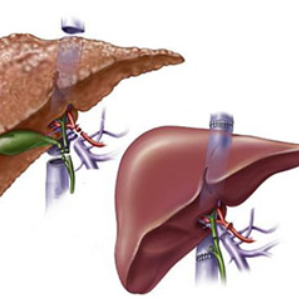- Home
- About
- Hospitals
-
Treatments
- Orthopedic & Spine
- Knee Replacement
- Carpal Tunnel Release
- Rotator Cuff Repair
- Meniscus Repair / Meniscectomy
- Total Hip Replacement (THR)
- Total Shoulder Replacement
- Arthroscopy
- Ligament Reconstruction
- Spinal Fusion
- Discectomy
- Laminectomy
- Spinal Decompression
- Vertebroplasty and Kyphoplasty
- Fracture Repair
- ACL Reconstruction
- Tendon Repair
- Osteotomy
- Amputation
- Pediatric and Adult Cardiac
- Neuroscience
- Oncology
- Nephrology & KTP
- Gastroenterology & Hepatobiliary
- Obstetrics and Gynaecology
- Infertility
- Dental & Maxillofacial
- Plastic & Cosmetic Surgery
- Rhinoplasty
- Blepharoplasty (Eyelid Surgery)
- Facelift (Rhytidectomy)
- Breast Augmentation (Mammoplasty)
- Breast Reduction (Mammoplasty)
- Breast Lift (Mastopexy)
- Liposuction
- Abdominoplasty (Tummy Tuck)
- Brazilian Butt Lift (BBL)
- Lip Augmentation
- Breast Reconstruction
- Cleft Lip and Palate Repair
- Scar Revision
- Burn Reconstruction
- Botox Injection
- Ophthalmology
- Otolaryngology (ENT)
- Endocrinology
- General and Minimal Invasive Surgery
- Pulmonology
- Rheumatology
- Urology
- General Medicine
- Ayurvedic Treatment
- Orthopedic & Spine
- Doctors
- Contact Us
Liver Transplantation
Liver Transplantation is a surgical procedure in which a diseased or damaged liver is
replaced with a healthy liver from a deceased or, in some cases, a living
donor. This complex and life-saving procedure is typically performed for
individuals with end-stage liver disease or acute liver failure.
Here are key aspects of liver transplantation:
Indications for Liver Transplantation:
End-Stage Liver Disease (ESLD): Liver transplantation is often considered when a person's liver is severely damaged and is unable to function properly. This can result from chronic liver diseases such as cirrhosis, hepatitis, or metabolic disorders.
Acute Liver Failure: In cases where the liver rapidly loses
its function, transplantation may be necessary to prevent life-threatening
complications.
Liver Cancer: Certain cases of hepatocellular carcinoma (a type of liver
cancer) may be eligible for liver transplantation, especially if the cancer is
within specified criteria.
Donor Types:
Deceased Donor (Cadaveric Transplant): The most common type of liver transplantation involves using a liver from a deceased donor. Organs are obtained from individuals who have been declared brain dead but still have functioning organs.
Living Donor Transplant: In some situations, a living person may
donate a portion of their liver, typically the right lobe, to the recipient.
The liver has the remarkable ability to regenerate, allowing both the donor and
recipient livers to grow back to near-normal size.
Liver Transplantation Procedure:
Evaluation: Both the recipient and potential living donors undergo a
thorough medical and psychological evaluation to ensure the procedure is
appropriate and safe.
Surgery: The surgical procedure involves removing the diseased liver
from the recipient and replacing it with the healthy donor liver. The blood
vessels and bile ducts are carefully connected to ensure proper blood flow and
drainage.
Postoperative Care: After the surgery, recipients are closely
monitored in the intensive care unit (ICU) for a period, and then in a regular
hospital setting. Immunosuppressive medications are prescribed to prevent the
recipient's immune system from attacking the new liver.
Recovery and Follow-up:
Recovery times vary, but patients typically spend several weeks in the hospital and then continue their recovery at home. Long-term follow-up is essential to monitor the health of the transplanted liver and manage any potential complications.
Liver transplantation has significantly improved survival rates and the quality of life for individuals with severe liver diseases. However, the availability of donor organs is limited, and transplantation decisions are made based on medical urgency, severity of illness, and organ availability.



.png)